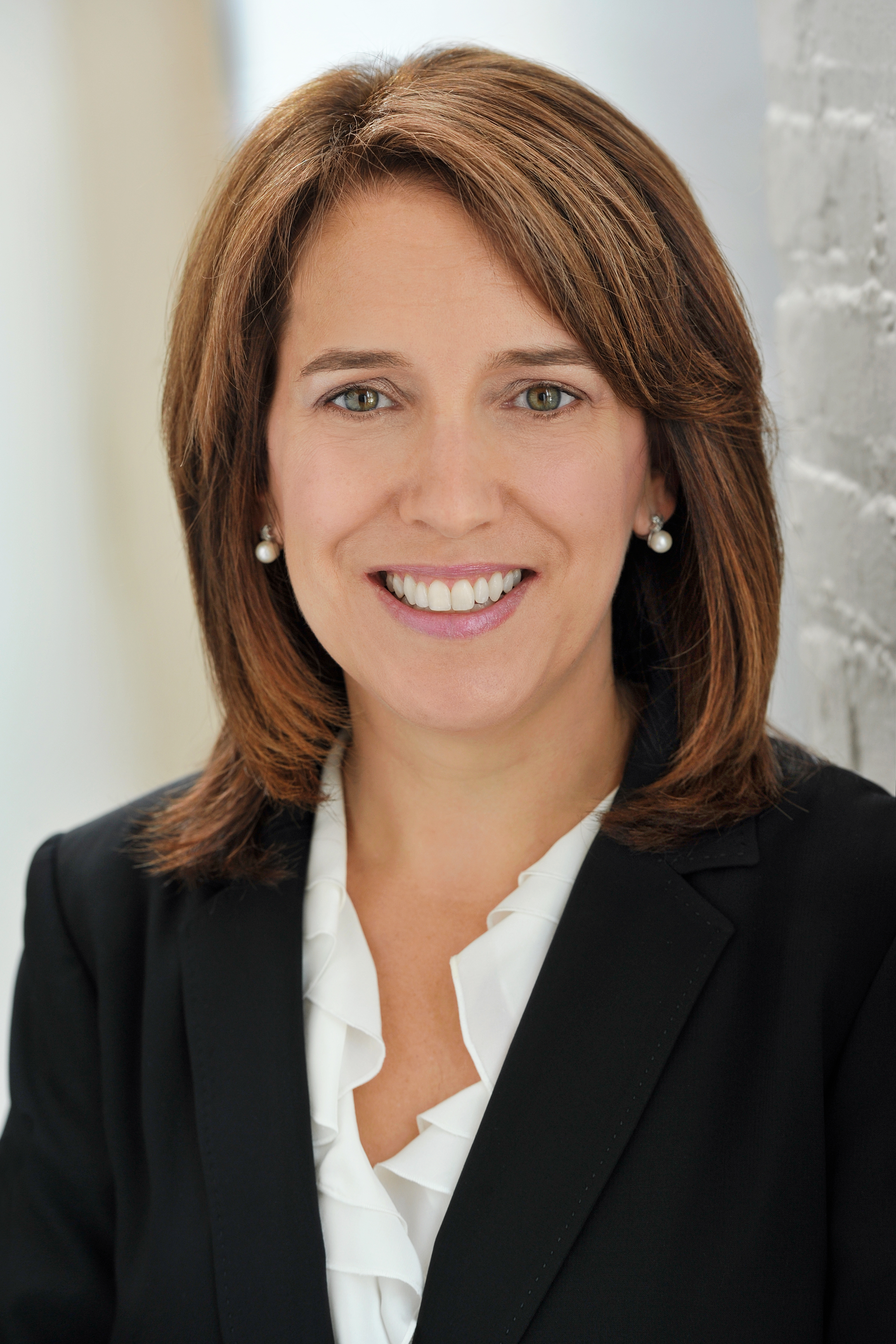Anna Salek: Partner, Private Client Team Leader, Shearman & Sterling LLC
 “Junior level women lawyers sometimes ask me for career advice, and I find the reoccurring theme is that they do not have a good understanding of their professional value,” says Anna Salek. “Very often, women grossly underestimate their value.”
“Junior level women lawyers sometimes ask me for career advice, and I find the reoccurring theme is that they do not have a good understanding of their professional value,” says Anna Salek. “Very often, women grossly underestimate their value.”
Salek talks about her genuine appreciation for cutting-edge legal work, the growth in a lateral move, the two-way street of value and daring to do what scares you.
The Gratification of Top-Tier Work
“I get immense satisfaction from solving complex problems,” says Salek, who enjoys tackling legal issues that perhaps no other firm has been able to solve sufficiently or that have never before even been considered.
As the private client team leader at Shearman & Sterling with over 20 years of direct experience, Salek works with high-net-worth individuals and families to meet their wide range of legal needs and specializes the areas of trust and estates, tax planning and not-for-profit law.
“I am lucky to work at a top-tier firm like Shearman where the clients are interesting and the legal work is challenging,” she says. “I love the cutting-edge work where often there’s no precedent and the client is relying on my judgment and experience.”
Salek joined Shearman in early 2019 to lead their private client team and was drawn there by the firm’s rich history, impressive client base and dynamic women.
Be Willing to Move To Expand
“I think women, more than men, are more prone to say, ‘they’ve been so good to me here’ and view moving on to another firm as being disloyal or ungrateful. Well, that’s fine that they’ve been good to you – they should be good to you,” says Salek. “But you should also be good to yourself and not be shy about exploring other opportunities.”
While the practice of trusts and estates is generally gender diverse, it is more often men who head up the practice, so replacing C. Jones Perry at Shearman when he retired as team leader was a strong leap ahead for women in leadership in law.
“I was very dedicated and happy at another top-tier-firm where I grew up as a lawyer, and I stayed there for a long time. But moving to another firm made me a better lawyer as it allowed me to grow in different directions than I otherwise would have,” says Salek. “Making a lateral move can help you grow professionally, but equally as important, you are bringing value to your new firm by contributing your own unique skills, experience and perspective.”
“I’m not suggesting women should job hop or even leave their job, but I do think everyone should consider it from time to time – even if only to confirm how good you have it. Men change firms more frequently than women, and it’s not a bad thing. With each move you’re not only likely to increase your compensation, but it’s also a huge personal and professional growth opportunity.”
Know Your Self-Worth
On a similar thread, the guidance that Salek consistently emphasizes to junior level women lawyers is to value themselves as professionals.
“You are valuable to your firm. It’s not just a one-way street. I find that women sometimes almost can’t hear that,” iterates Salek. “They’re reluctant to ask for anything—equity, more compensation. a flexible work schedule, for example – or give themselves credit. Reminding women of their professional contributions to their firm is what I end up doing in almost every single one of those conversations.”
The Relationship Side of Private Client Work
On top of being challenged by the academic intricacies of her practice area, Salek loves the client interaction and deep relationships involved in her area of law. She enjoys working with individuals and families, many of whom have been long-term generational clients of the firm.
“The clients I work with tend to be extremely interesting people,” says Salek, for whom “field trips” to clients’ homes and offices are as much a part of her job as being behind her desk.
“When people invite you into the world of their personal finances, they inevitably invite you into their family and personal lives,” says Salek who feels that women especially thrive in cultivating relationships and trust.
“Not only do you have to be a proficient lawyer, you need to be personable and trustworthy. There’s just an element of being trusted that’s not something you can learn and that quality has helped me a lot, second certainly to really knowing what I’m doing,” she says. “I have clients who are women who have said they picked me because they prefer to work with a woman, and I have had male clients who say the same thing.”
Do What Scares You
“My advice to junior lawyers would be: don’t shy away from things that intimidate you. In fact, seek them out. Do something that scares you every day,” Salek says. “I’m not talking about skydiving. I’m talking about challenging yourself. Don’t like public speaking? Do a webinar, go sit on a panel. Don’t think you know enough about something? Help a client with that particular issue or publish an article about it. Shy? Invite someone you would like to get to know or learn from for lunch or coffee.”
Salek credits her own integration of this advice for having made her into a more confident lawyer today.
”I feel women especially don’t like to be outside of their comfort zone, but that’s the only place where you can grow,” she says. “It’s really important to push your own boundaries.”
Practicing Work-Life Integration
A rewarding aspect of her work has been the pro bono cases where Salek has been able to champion people and organizations in critical financial wins, where she sometimes gets as involved in interpersonal dynamics as with her private clients.
Salek finds that for her, work enters home life and home life enters work, so she embraces the work-life integration approach of keeping both in even keel, rather than “the two-iPhone approach” of work-life balance, which she feels is a false separation of parts of life that live inside of the same universe.
She is married with two teenagers, a daughter of 16 and a son of 14, and notes one silver lining of the pandemic is that people who were technology-resistant have been forced to embrace technology, opening up more remote working possibilities.
Salek is an avid, hands-in-the-dirt gardener. Her favorite season is spring, and she finds that “observing the earth awakening is so good for the soul.”
By Aimee Hansen









